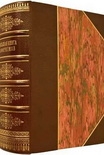Loverly:The Life and Times of My Fair Lady (Broadway Legacies) by McHugh, Dominic (best ereader for pc .TXT) 📗

Book online «Loverly:The Life and Times of My Fair Lady (Broadway Legacies) by McHugh, Dominic (best ereader for pc .TXT) 📗». Author McHugh, Dominic
The next number was much slower in coming. As noted previously, the song originally intended to fill the spot after “The Rain in Spain” was called “Shy.” A solo for Eliza, it speaks overtly of the character’s love for Higgins and was certainly in place by the early autumn of 1955. On Outline 4, it is named as both the “Third Song” of act 1, scene 5, and the piece of music intended to end the musical. It was eventually replaced, of course, by “I Could Have Danced All Night.” A musical synopsis of the second act of the show, kept in an envelope in the Warner-Chappell Collection, refers to the reprise of a song for Eliza called “The Story of My Life,” which is crossed out and replaced by “I Could Have Danced” in Loewe’s hand; presumably this was an intermediate replacement for “Shy” before “Danced” was composed.12
Lerner admits the problems the collaborators had with this song in his autobiography. He says they had tried to give Eliza “a lyrical burst of triumph” after “The Rain in Spain,” which would also reveal “her unconscious feelings for Higgins.” But all their attempts “emerged with her true feelings on her sleeve.”13 Lerner goes on to explain how he managed to come up with the title of “I Could Have Danced All Night” during the final week before the start of rehearsals.14 He says that “Fritz set it in a day” and that he finished writing the words in twenty-four hours—“but not to my satisfaction.” He admired Loewe’s melody, but “blushed” when singing him the line: “‘And [sic] all at once my heart took flight’. I promised Fritz I would change it as soon as I could. As it turned out, I was never able to.”15 None of this confirms Marni Nixon’s claim that she first heard the song in “the early spring of 1954,” when it “was in 3/4 time with a very European operetta sound,”16 but it is true that the title of the song was at one point “I Want to Dance All Night.” Curiously, this was an afterthought rather than the original version. The rehearsal script, Loewe’s autograph, and Bennett’s full score all use the words “I Could Have Danced” as does a copyist’s score in Levin’s papers.17 However, a photocopy of this copyist’s score is headed “I Want to Dance All Night” in Loewe’s hand,18 and another typed script in Levin’s papers replaces “Could” with “Want” in the final scene (where “I Want to Dance” is heard in the orchestra).19 A further script also has this, and on both the list of musical numbers and the pages of the actual song (1-5-52 to 1-5-55) the title is shown as “I Want to Dance All Night.”20 Strangely, the lyric itself still reads “I could have danced.” The playbills for the tryouts in New Haven and Philadelphia use the word “Want,” as did early pressings of the show’s Original Cast Album (though Julie Andrews sings “could” throughout).21 It seems that Lerner briefly considered a change but finally decided to leave the lyric alone.22
The autograph manuscript of the song follows precedent in being a fluently written fair copy of the published version. In two respects, the score postdates the initial composition of the score. First, the verse (“Bed! Bed! I couldn’t go to bed”) follows the published edition in indicating “Allegro molto” as the tempo, in putting mf for the introduction and p when the voice enters, and in writing the melody and accompaniment in quaver beats. By contrast, the copyist’s score (used in rehearsal) has two bars of quarter note beats for the introduction (rather than one bar of eights), has “Allegro” as the tempo, and indicates only mf by way of dynamic through the whole verse. Furthermore, “Bed! Bed! I couldn’t go to” (and so on) is set to quarter notes rather than eights; in other words, the copyist’s score of both verse and refrain is half the speed of Loewe’s score. The second difference between the scores involves the Maids’ countersubject during the second refrain. The rehearsal script and full score have a bridge passage (starting “Not one word more, dear”) and counterpoint for Mrs. Pearce (without the Maids). This was all replaced in the published version with a part for the Maids (who sing “It’s after three, now”). They follow the original counterpoint for Mrs. Pearce for the first four lines of the counterpoint thereafter, and also take up her final four lines, but the middle of their part was replaced. Mrs. Pearce’s only part in the definitive version of the show is to sing three brief lines to connect the second and third verses.23 Perhaps Philippa Bevans’s prowess as a singer was not sufficient to give her the whole of the countersubject; perhaps Lerner and Loewe wanted to make sure that the words of the countersubject could be heard by allotting more singers to it; or perhaps the intention was to create a feeling of bustle around Eliza as she continues to repeat the refrain. Whatever the case, the copy of the song in the Loewe Collection represents the final version of the lyric, rather than that shown in the rehearsal script and copyist’s score. Bennett’s full score confirms that the Loewe autograph was a late creation: although Bennett adopts the final version of the music in terms of rhythm (eighth notes rather than quarter notes), he uses the earlier lyric from the rehearsal script.24
Loewe’s accomplishment in this much-heard song is easy to overlook. The verse is brief but functions brilliantly: after





Comments (0)